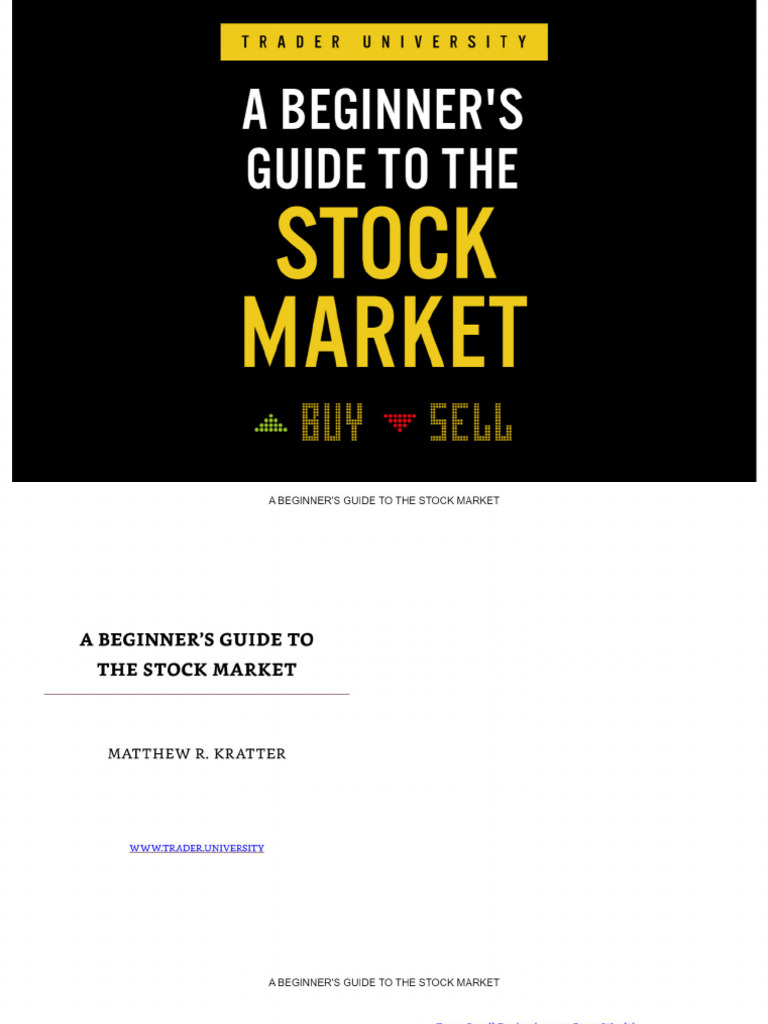The world of stock market investing can often feel overwhelming, especially for those just stepping into this dynamic arena. However, understanding the fundamentals and gaining practical knowledge can significantly enhance your confidence and effectiveness as an investor. This guide aims to provide you with everything you need to know about entering the stock market confidently, with a special focus on making it accessible for beginners.
Understanding Stock Market Investing: A Beginner’s Guide
Stock market investing is not just about buying and selling shares; it’s about understanding the underlying principles that govern financial markets. For absolute beginners, the first step is to familiarize yourself with key concepts such as stocks, bonds, dividends, and market indices. Each of these components plays a significant role in the broader picture of stock market investing.
Essential Concepts in Stock Market Investing
Let’s delve deeper into some essential concepts that are crucial for anyone looking to start investing in stocks:
- Stocks: These are shares of ownership in a company. When you buy a stock, you become a part-owner of that company, which means you can earn dividends and benefit from the capital growth.
- Dividends: Many companies pay dividends to shareholders as a way to distribute profits. It’s a great way to earn passive income on your investments.
- Market Indices: Indices like the S&P 500 or Dow Jones Industrial Average represent a collection of stocks meant to provide a snapshot of market performance.
Stock Market Investing Guide for Beginners: Tools You Will Need
As you embark on your investing journey, having the right tools is crucial. Here are some essential resources that every beginner should consider:
- An Online Brokerage Account: To start buying and selling stocks, you’ll need an account with an online broker. This platform allows you to make transactions and manage your portfolio.
- Financial News and Analysis: Keeping up with financial news will keep you informed about market trends and significant events that can influence stock performance.
- Investment Research Tools: Many online platforms offer research tools that can help you evaluate different stocks and make informed decisions.
Visualizing Stock Market Trends
Your Stock Market Investing Guide for Beginners
The journey into the stock market is as much about intuitive understanding as it is about hard numbers. One helpful resource for beginners is visual representations of market trends. Below, we have a significant informative image that highlights valuable data regarding stock market performance.
Essential Insights into Stock Market Performance
By analyzing these visual data representations, investors can identify patterns that might inform their investment strategies. It’s beneficial to understand historical performance data and current market conditions.
The Importance of Diversification in Your Stock Market Investing Guide
Diversification is a critical strategy for minimizing risks in stock market investing. It involves spreading your investments across various sectors and asset classes. By doing this, you reduce the impact of poor performance in any single investment on your total portfolio.
How to Diversify Your Investments
As a beginner, here are some techniques to consider when diversifying your investment portfolio:
- Invest in Different Industries: Don’t put all your money into one sector; invest in technology, healthcare, consumer goods, and more.
- Mix Asset Classes: Consider a balance of stocks, bonds, and other investment vehicles like REITs (Real Estate Investment Trusts) that can provide stability and growth potential.
- Use Mutual Funds or ETFs: These funds give you the exposure to a diversified portfolio of stocks, making it easier to achieve diversification quickly.
Stock Market Investing Guide for Beginners: The Psychology of Investing
While facts and figures are essential, understanding the psychological aspects of investing can also make a significant difference in your success. Fear and greed are powerful emotions that can lead to irrational decisions. Here’s how to manage your mindset:
Developing a Healthy Mindset for Investing
Having the right mindset is vital when investing in stocks. Here are some strategies to develop a healthy and constructive mindset:
- Set Realistic Expectations: Understand that investing is a long-term endeavor. Expect ups and downs, and don’t panic during downturns.
- Stick to Your Plan: Create a clear investment strategy and adhere to it. This discipline will help you avoid impulsive decisions based on market fluctuations.
- Continue Learning: Education doesn’t stop once you invest. Keep improving your knowledge about the stock market and financial principles.
Recognizing Common Mistakes in Stock Market Investing
Even the most seasoned investors make mistakes; what sets successful investors apart is their ability to learn from errors. Here are common pitfalls that beginners can avoid:
- Chasing Hot Stocks: Often, investors will pour money into stocks that are trending without proper research. This can result in significant losses.
- Timing the Market: Many believe they can predict the market’s movements. However, it’s nearly impossible to consistently time your buys and sells effectively.
- Neglecting Research: Investing without comprehensive research can lead to poor investment choices. Always analyze before you buy.
Your Roadmap for Stock Market Success
Embarking on a journey in stock market investing can be rewarding if approached with patience and education. As you continue developing your skills and knowledge, always refer back to your investing guide as a resource for navigating the complex world of finance.
Engage with Other Investors
Join local or online investment clubs and communities. Engaging with like-minded individuals can provide insights and tips that enhance your investing prowess.
Keep Evolving Your Strategy
The stock market is an ever-changing environment, and your strategies should adapt accordingly. Always be prepared to revisit your plan and fine-tune it based on new information and experiences.
In conclusion, stock market investing is a journey filled with learning opportunities. With this beginner’s guide, you’re well-equipped to navigate the complexities of the stock market. Embrace the learning process, make informed decisions, and over time, you’ll find your confidence growing alongside your portfolio. Happy investing!



